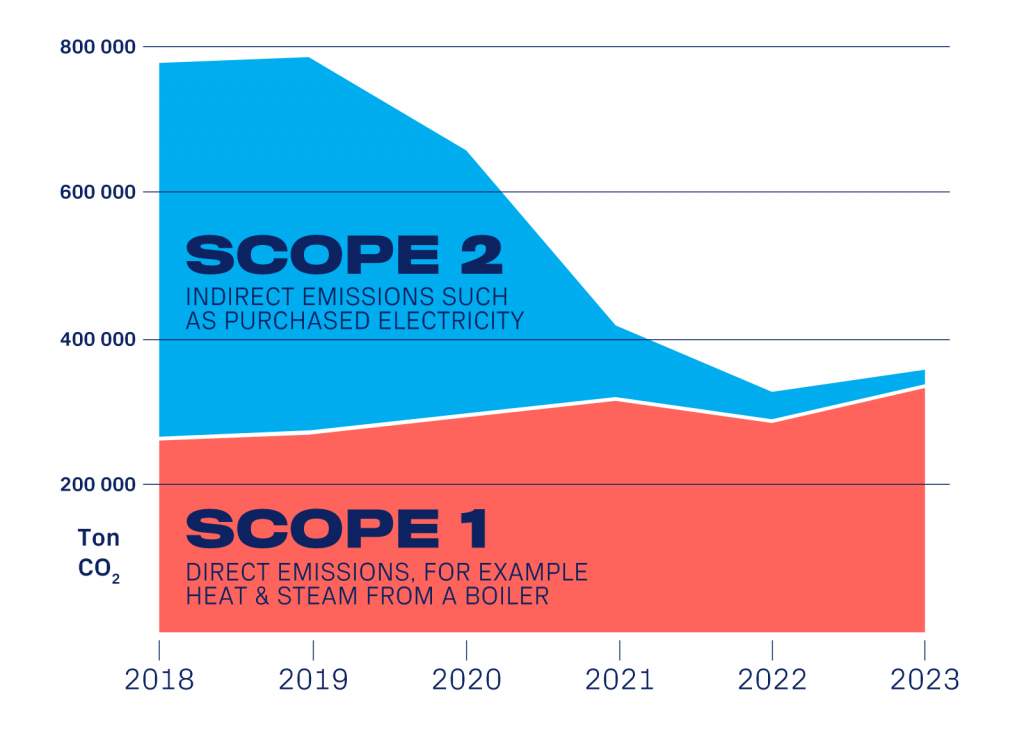Latest News:
2025-09-15
The EU's CSRD directive requires companies to report detailed plans for how they will reduce their own emissions - not only by purchasing green electricity, but also by replacing the fossil fuels that power the factories. Here, the process heat is at the center.
How companies should count their emissions is regulated in the “Greenhouse Gas Protocol” with detailed rules maintained by the World Business Council for Sustainable Development (WBCSD) and the World Resource Institute (WRI). It divides emissions into three categories:
Scope 1 is the companies’ own emissions from their own boilers, their own cars and travel. For Absolicon’s customers, the majority of scope 1 comes from the natural gas that is burned to produce process heat.
Scope 2 is emissions from purchased electricity. Electricity was previously produced mainly with coal power, but this has changed. Most large companies now buy electricity from wind power. According to GHG, electricity does not need to be produced at the same time as it is consumed, and by signing Power Purchase Agreements (PPAs) with wind and solar farms, the large companies have almost completely eliminated their emissions in Scope 2.
Scope 3 are the emissions caused by the company’s purchase of raw materials and the use of the products. For example, for a soft drink manufacturer, Scope 3 is emissions from the production of the sugar used, as well as the electricity in the refrigerated counter in a store that sells the soft drink and the recycling of the soda bottle.
Most companies have already managed to reduce their Scope 2 emissions by signing renewable electricity contracts. But in Scope 1 – the own emissions from boilers and processes – development has in many cases come to a standstill. Globally, enormous amounts of natural gas and oil are still burned to produce the heat that is absolutely crucial in everything from breweries to food production.

To meet the requirements and reduce its climate footprint, the industry needs to take the next step. Some of the most promising solutions are:
For many companies, the transition can feel complex. But that is precisely why those who act first will also be those who strengthen their competitiveness. Companies that already show a clear plan to replace fossil fuels with sustainable alternatives position themselves as the winners of the future – both to investors, customers and their own employees.
Thermal Energy Storage >>
Absolicon T160 Solar Collector >>
Corporate sustainability reporting – European Commission >>